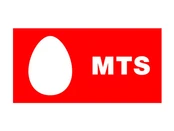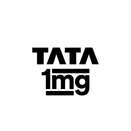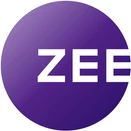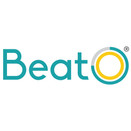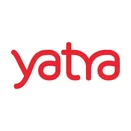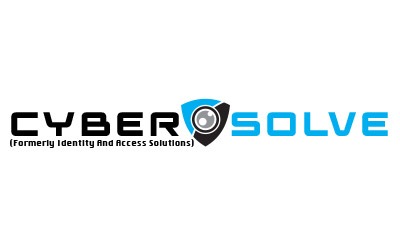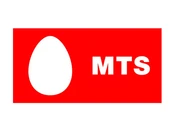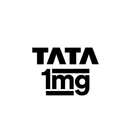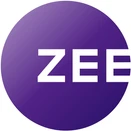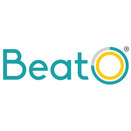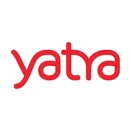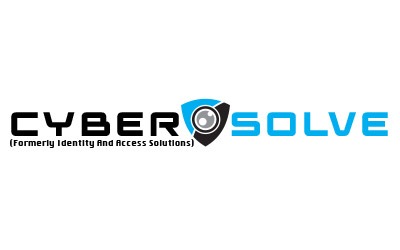PR stands for “Public Relations”. It is a strategic communication process aimed at building and maintaining ‘Positive Relationships & Trust’ between an organization (or individual) and its target audience like customers, investors, employees through different forms of Media (Digital, print, social etc.)
PR involves a range of activities, including media relations, event management, crisis communication, press releases, press conferences among others. The goal of PR is to create a positive public image for the organization or individual, enhance its reputation, and increase its visibility and credibility in the marketplace.
Effective PR can help organizations to attract new customers, retain existing ones, and improve their bottom line
Public relations is a critical component of any marketing and communication strategy for a brand. PR helps a brand
1) To build and maintain (for long term) a positive sentiment :- PR enhances brand’s reputation, trust factor & credibility in the marketplace.
2) To increase visibility (a sort of branding) :- It helps in creating TOMA in consumer’s mind
Through effective PR, a brand can establish itself as an industry leader, create a strong brand identity, and differentiate itself from its competitors.
In addition, PR can help a brand to manage crises and issues that may arise, such as product recalls or negative publicity. A well-planned and executed PR strategy can help a brand to address these issues and minimize any negative impact on its reputation and bottom line.
Also PR doesn’t burn a huge whole in Brand’s pocket. It is a cost effective solution
Is PR cost effective as compared to other avenues?
Yes, PR is not very costly. Cost of PR can vary depending on the size and scope of the campaign, as well as the agency or professional hired to manage the PR efforts. However, compared to other marketing and advertising efforts, PR can be a cost-effective way to promote a brand, build credibility, and enhance reputation
PR costs can include agency fees plus some other event costs (not much). Brands can hire a freelancer, consultant or an agency to manage their PR efforts on a project basis or a regular ongoing basis (recurring basis). Define the scope of work basis your budget, time & requirements.
Just for an idea, the cost may vary in between 1 lacs to 4 lacs per month. May go down if you take freelancers also.
When should brands do PR? Any special timeframe?
Brands should do PR on an ongoing basis to build and maintain a positive reputation and relationship with their target audience. However, there are specific situations where a brand may want to focus more on their PR efforts.
-
Launching a new product/service/outlet/store : When a brand is introducing a new product/service/outlet/store to the market, PR can be used to create buzz and generate interest among potential customers.
-
Building brand awareness : If a brand is new or has low brand recognition, PR can help to increase visibility and create awareness of the brand among its target audience.
-
Responding to a crisis : When a brand faces a crisis, such as a product recall or negative publicity, PR can help to manage the situation and minimize the impact on the brand’s reputation.
-
Building thought leadership : PR can be used to position a brand as a thought leader in its industry. By creating and sharing valuable content and insights, a brand can establish itself as an expert and gain credibility among its target audience.
-
Attracting right talent or investors or community : PR can help a brand to connect with its key stakeholders like employees, investors & community members
What exactly brands do in PR campaigns? Give examples
1) Building Media Relations: This involves building relationships with Media houses & journalists, pitching story ideas like trends, interviews, new launches and securing coverage in print, TV, and online media. This involves creating compelling and informative content, such as press releases, blog posts, articles, and social media posts, to engage with the target audience and promote the brand’s message
Example 1 :- a travel related journalists may be interested to know the journey of a founder or how covid impacted travel industry.
Example 2:- Media houses are very much inclined to have stories around ‘DATA Crunching e.g. what % of children in India are most likely to have diabetes at the age of 35-40 etc. Example 3:- A sale is about to come, then brands may popularize that through press releases which have content & quotes. 2) Event Management: This involves planning and executing events, such as press conferences, product launches and promotional events, to generate interest and coverage in the media and among the target audience
Example :- A brand is entering into offline stores & plans to launch first store at Gurgaon. Then they can call media professionals to have a press conference where in media will click pictures, have QnA sessions with founders etc. 3) Crisis Management: This involves developing and executing a plan to manage a crisis or negative situation that may arise, such as a product recall or negative publicity
Example :- A car manufacturer recalls few 100 models of a car due to some major defect. Then PR is done to save image of brand thereby putting a positive sentiments rather than negative. 4) Social Media Management: This involves managing the brand’s social media channels, creating and sharing content, engaging with followers, and monitoring online conversations about the brand.
Example :- Building founders’ profile on Linkedin, doing organic posting on IG & FB to boost followers etc.
Is hiring an agency must to do PR? Can’t it be done in-house
It is recommended that brands should hire a proficient agency basis the SOW & budget. You can evaluate options of freelancers also.
Please note that PR is nothing but a deep relationship with media houses & media professionals, which is brought by agency on table. Developing those deep & meaningful relationships with media houses from brand itself (possibly from scratch) may be time taking & hence in-house approach is not recommended (although no hard & fast rule)
I want to do PR now? What things to keep in mind? Any learnings
1) Decide objective & spokesperson face :- Think, Think again on the objective. Be very clear on why you want to PR. It can be reasons like building trust in customer’s mind, it can be because of new launches etc. Decide that whether you want PR to be a monthly activity (reoccurring) or a sporadic kind of activity. Also decide who will be face to media interactions (spokesperson or basically the face with whom quotes will be given)
2) Clearly define the TG & Geographies you want to target :- Once you are done with objective, please define the TG & geos to target for. TG can be customers, employees, investors, community members like doctors, hoteliers etc.
3) Hunt an agency or a freelancer (Very crucial step) :- A very crucial step. Let’s deep dive in detail. While choosing an agency look for :-
-
Industry experience : Look for a PR agency that has experience working in your industry. They should have a deep understanding of your target audience, key stakeholders, and competitors.
-
Media contacts : The agency should have huge connects of the media professionals (from junior to senior) of all media houses in the industry and outside the industry also.
-
Content writing skills : The agency should have good quality content writers to draft PR content in a media ready way. Agency should create drafts (as per the ethos of brand) & then send for vetting.
-
Creativity: Look for an agency that can bring fresh and innovative ideas to your campaigns. They should be able to think outside the box and come up with creative solutions to your PR challenges.
-
Response time : In PR timing is crucial. The agency should have a track record of delivering results swiftly & within a particular time frame. e.g. in case of crisis agency has to act very fast to prevent dent on brand image else the damage can’t be controlled.
-
Deep knowledge of competition activity, industry trends :- Agency should keep their eyes wide open to make the client aware about what’s happening ‘NEW’ in the market/industry. What other competition brands are upto. What should be the stories that client can look upto to make them thought leaders
-
Budget: Make sure that the agency’s pricing fits within your budget. Also make a detailed SOW & then decide on pricing. However, don’t choose an agency solely based on price.
4) Make process to vet the PR draft (not only english but key information including data points etc.) :- Suggested process is like this
Step1 :- Make a monthly calendar, shared with agency & other key stakeholders (Internal)
Step 2 :- Ask agency to send questions for a PR ( as per the calendar) well in advance
Step 3:- Brands will answers those questions in detailed manner (focus is not just fancy english but right set of information with right data sets)
Step 4 :- Based on the answers given by brands, agency will make a draft of PR in a media ready way. Hence it is imperative to have good content writers at agency’s side
Step 5 :- Brand will vet the draft & send the final ‘GO TO Draft’ for release
5) Make sure you are covered by renowned media houses :-
Quality coverage is very important, not just any coverage. Make sure you get noticed by big media houses along with smaller ones. Quantity of coverage is important but what is more important is Quality e.g. coverage in top 10 media houses like TOI, HT, Indian express etc. is far more better than getting 30 coverages in smaller ones.
Will PR increase my sales/order (hard KPIs)?
PR can indirectly lead to an increase in sales, but it is not a direct sales tactic. Its impact on sales may be difficult to measure. PR is a long-term strategy that focuses on building relationships and trust with the target audience, rather than driving immediate sales. PR can indirectly contribute to an increase in sales by building the brand’s reputation, increasing awareness and consideration among potential customers, and ultimately improving the brand’s overall business performance
Whom I can target through audience?
PR can be targeted to multiple stakeholders. Brands can target wide range of audiences, depending on the specific goals of the PR campaign. Here are some potential audiences that PR can target:
1) Customers : PR can be used to target existing customers and potential customers by creating positive brand awareness, promoting products or services, and highlighting the benefits of doing business with your company.
2) Investors : PR can be used to target investors by showcasing the company’s financial performance, highlighting new products or services, and demonstrating the potential for growth.
3) Employees : PR can be used to target employees by highlighting company culture, sharing news about company successes and initiatives, and recognizing outstanding employees.
4) Community : PR can be used to target the specific community (associations) like doctors, hoteliers, restaurants etc.
5) Government : PR can be used to target government officials by advocating for policy changes that benefit the company or industry, participating in regulatory discussions, and communicating with elected representatives.
My TG (customers) is from lower middle class. Still PR relevant?
Yes, still PR is relevant. Because no matter who is your TG (or in what strata your TG lies), all brands show advertisement to their TG in one & another form. Let’s understand from an example
A brand’s TG is delivery boys in a tier 2 town, then brands might be showing ads through print medium, doing newspaper inserts, billboards etc. Now ads are good but these doesn’t build a lot of trust in the TG’s mind. But if a brand do PR (a print article in a local newspaper), it will not only build trust but will be quite cost effective.
PR can be done through targeted outreach to media outlets that cater to lower class audiences, as well as through community engagement and social media campaigns that speak directly to the concerns and interests of this demographic
So for which brands/industries PR is relevant?
I would say it can fit into ANY box. The only difference comes in SCOPE. A brand selling groceries might have a different scope of work vis-a-vis a brand selling cars. Also the objective might be different like grocery brand might target investors or vendors & car brand might target end customers. So make a proper objective & scope and then start PR.
Is PR necessarily be a monthly recurring expense. Or can be a project basis also?
PR is very flexible. It can be tweaked in both models. However project basis payouts (expenses) might be higher & difficult to measure its efficacy. Suppose you want to do PR only for crisis management, you can hire an agency/freelancer to do this project. Agencies charge higher but they are open to take project basis tasks also.
Fame is like a double-edged sword – it can bring you great success and recognition, but it CAN sometimes be negative also.
1) Lack of control :- While brand gives a final draft to agency & agency then circulate to media houses, however media houses are free to modify those as per their policies (it happens rarely, but it can happen)
2) Adverse Regulations :- If any regulation comes (either a new one of an old modification) which is against your industry, the impact might be higher to you because you are most popular among media professionals.
So everything has both pros & cons. One has to live up with this
How to measure PR? What are KPIs?
A important question which needs to be answered in more detailed manner. This will be dealt in detail in next article. We will also establish the relationship between offpage SEO & PR and find out the KPIs, their definitions & measurements. Read
https://www.priyangagarwal.com/post/beyond-press-clippings-tracking-pr-impact









